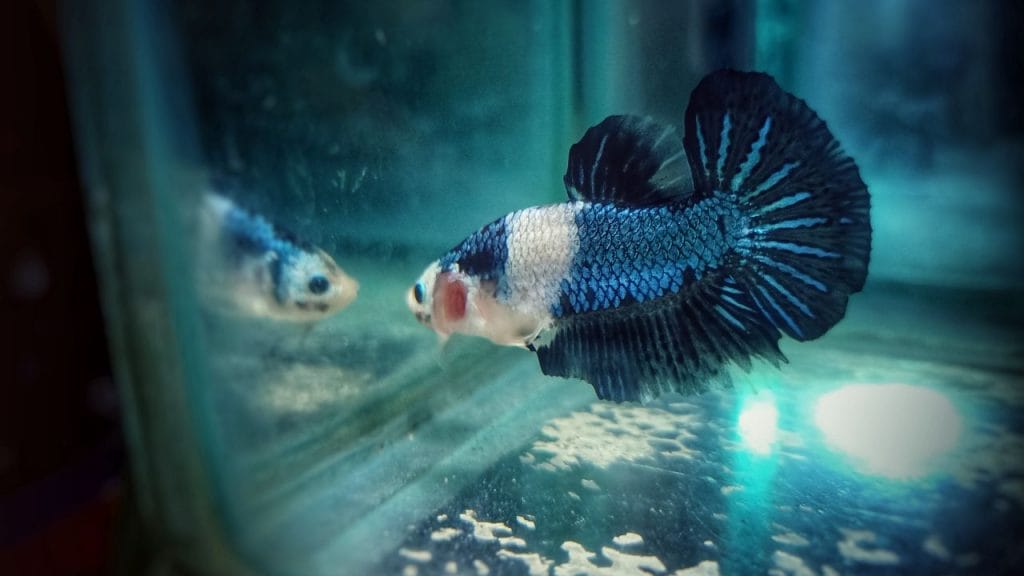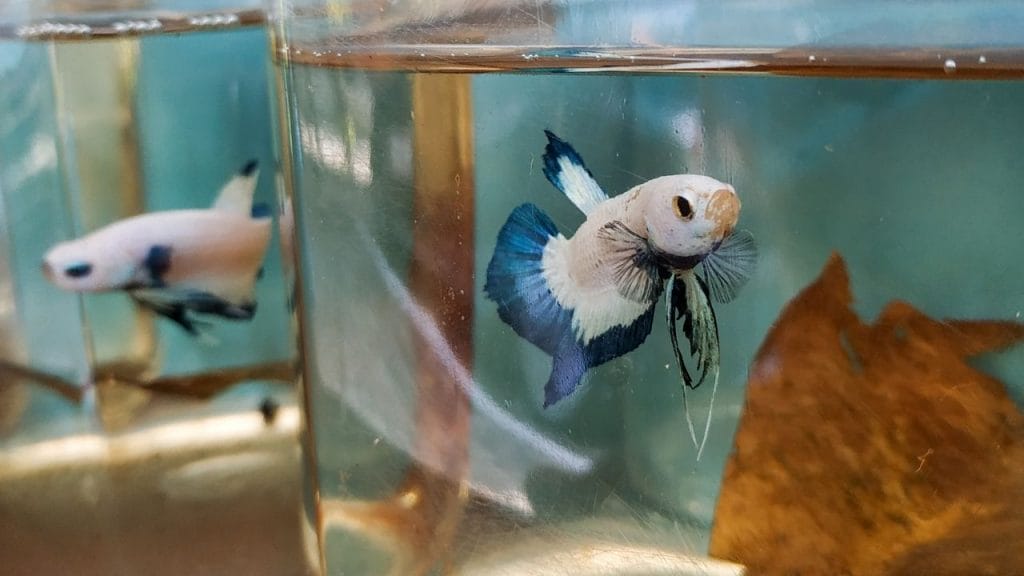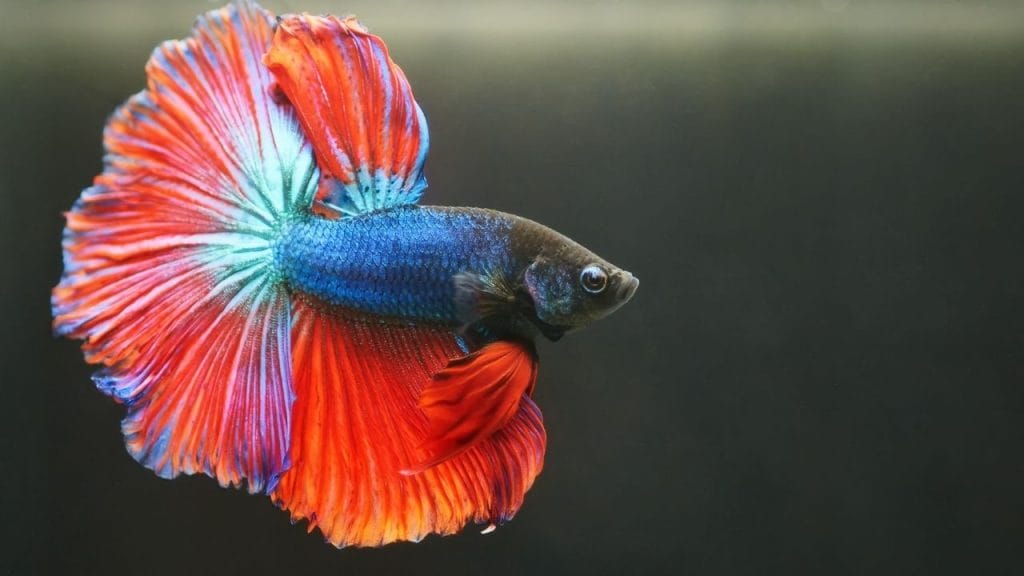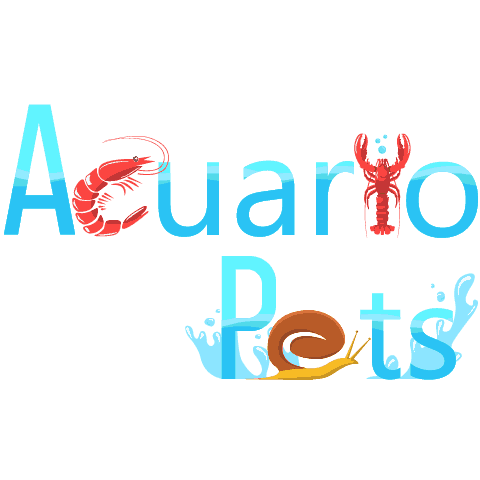This post was created with help from AI tools and carefully reviewed by a human (Muntaseer Rahman) . For more on how we use AI on this site, check out our Editorial Policy.
Check Out These FREE Tools We Made JUST For You!
Betta Fish Poop: What Secrets It Holds?

You thought you signed up for a beautiful fish, not a career in poop analysis.
Wrong! Your betta’s bathroom habits are like a tiny health report card that gets delivered to the bottom of your tank 5-6 times a day.
And trust me, ignoring this little health newsletter is like skipping your annual checkup – you’ll regret it later.
What Healthy Betta Poop Actually Looks Like
Healthy betta poop is brown and globby, small and round like a pellet. Think tiny cinnamon buns, as one fish owner hilariously described it.
Normal betta poop tends to be rounded and brown to orange-ish, depending on the color of the food, about as big as a grain of rice.
Here’s what you’re looking for:
- Color: Brown to reddish-brown (matching their food)
- Shape: Small, round pellets
- Size: Grain of rice or smaller
- Consistency: Firm but breaks apart easily
Plot twist? Betta poop looks remarkably like uneaten food pellets, so those “leftover pellets” at the bottom might actually be your fish’s bathroom achievements.

The Betta Digestive System: Smaller Than You Think
Here’s the kicker that’ll change how you feed your fish forever: a betta’s stomach is about the size of their eye.
Let that sink in. Their entire stomach is eyeball-sized.
Food gets mashed up using their teeth, swallowed into their stomach where digestion occurs, then passes into their intestine where nutrients are absorbed, and leftover matter becomes waste that exits through the anus.
This tiny digestive system means only 2-4 pellets 1-2 times daily is plenty. That “feed what they can eat in 3 minutes” rule on food containers? Pure marketing nonsense that leads to chunky fish and constipation nightmares.
When Poop Goes Wrong: The Warning Signs
The Stringy Situation
Stringy poop hanging from their anus is generally a sign of overfeeding and constipation as long as it’s brown and not white.
One panicked fish owner thought their betta had “prolapsed intestines” until the scary-looking orange matter just fell off during feeding time – it was mega-constipation poop that looked like intestines hanging out.
The White Flag of Surrender
White, long and skinny stringy poop may be a sign of internal parasites. But hold your horses before you panic-buy medications.
Here’s the plot twist most of the internet gets wrong: white stringy poop is often just empty fecal casts when fish haven’t eaten, not parasites. A fish vet explains that if you’re only feeding once or twice a day, there will be lots of empty bowel movements.
The Pea-Sized Problem
If the poop is large and round, getting up to the size of a pea, the fish was constipated. This is your betta’s way of saying “Hey, you’ve been overfeeding me, genius!”

How Often Should Your Betta Poop?
Most bettas poop around 5-6 times a day. However, poop is small and often goes unnoticed unless there’s a buildup.
Bettas are secretive poopers who often choose the same spot, usually a planted area or quiet corner. They’re basically the cats of the fish world – they want privacy for their business.
The Betta Poop Detective’s Toolkit
Color Chart Breakdown
| Poop Color | What It Means | Action Needed |
|---|---|---|
| Brown/Tan | Perfect health | Keep doing what you’re doing |
| Reddish-brown | Normal (food coloring) | No worries |
| White/Clear | Empty stomach or parasites | Monitor and check feeding schedule |
| Very dark/black | Possible internal bleeding | Vet consultation |
| Bright colors | Matches recent food | Normal unless persistent |
The Temperature Connection
Cold waters below 75°F cause their metabolism to slow down, and they poop less often. Betta fish require water temperature of 76-82°F to support digestion.
Cold water equals slow digestion equals constipation central. Keep that water toasty!
Common Poop Problems and Solutions
Constipation Crisis
Signs your betta is backed up:
- No poop for days
- Bloated appearance and lethargy
- Stringy brown poop hanging around
The fix:
- Fast for 2-3 days
- Try the pea method: frozen pea in hot water for 2 minutes, transfer to cold water, feed 1/2 peeled pea daily
- Place a mirror near the tank – betta fish often poop when flaring

The Parasite Panic
Real parasite signs include:
- Persistent white stringy poop
- Weight loss
- Lethargy and loss of appetite
But remember – parasites in betta fish are rare unless you’ve just gotten the fish or introduced new plants/fish recently.
Pro Tips from the Trenches
Feeding Wisdom
Fasting one day a week can help promote digestive health. In the wild, bettas don’t get room service – occasional fasting is natural and healthy.
Tank Setup Matters
Poor water conditions can lead to stress and digestive issues, affecting poop appearance. Clean water equals happy digestion equals normal poop.
The Exercise Factor
Exercise helps keep their digestion regular so they don’t become constipated. A bored betta in a tiny bowl isn’t just sad – they’re probably constipated too.

When to Actually Worry
Call in the professionals if you see:
- No poop for a week (not just missing it – actually none)
- Persistent white stringy poop with weight loss
- Blood in the water (not food coloring)
- Extreme lethargy with bloating
The Bottom Line (Literally)
Your betta’s poop is basically their daily health status update.
Remember, a betta’s stomach is about the size of their eye, so only feed 2-4 pellets 1-2 times daily. Most poop problems come down to one thing: we’re killing them with kindness by overfeeding.
Think of yourself as a betta poop detective. Those tiny brown pellets at the bottom of your tank aren’t just waste – they’re clues about whether you’re nailing this whole fish parent thing or accidentally creating a constipated, unhappy fish.
Start paying attention to your betta’s bathroom habits today. Your fish will thank you by living longer, swimming more actively, and looking absolutely stunning. Plus, you’ll have the weirdest but most useful conversation starter at parties: “Did you know betta fish poop tells you everything about their health?”
Trust me, once you become fluent in poop language, you’ll wonder how you ever kept fish without this insider knowledge.
About Author
Hello, I’m Muntaseer Rahman, the owner of AcuarioPets.com. I’m passionate about aquarium pets like shrimps, snails, crabs, and crayfish. I’ve created this website to share my expertise and help you provide better care for these amazing pets.
Disclaimer
This site is owned and operated by Muntaseer Rahman. AcuarioPets.com is a participant in the Amazon Services LLC Associates Program, an affiliate advertising program designed to provide a means for sites to earn advertising fees by advertising and linking to Amazon.com. This site also participates in other affiliate programs and is compensated for referring traffic and business to these companies.

